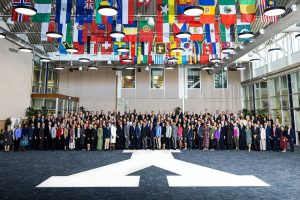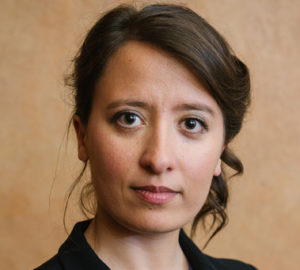Religion’s Roles in Peacebuilding: The 29th Annual Law and Religion Symposium
The ICLRS held its 29th Annual International Law and Religion Symposium, “Religion’s Roles in Peacebuilding,” 1–5 October 2022. While the Covid pandemic restricted Symposia to online meetings in 2020 and 2021, this year’s Symposium gathered more than 80 delegates from 40 countries for sessions and related events at the J. Reuben Clark Law School, Brigham Young University, and in Salt Lake City, Utah, USA. The following select presentations are illustrative of the depth and breadth of the Symposium’s 90-plus presentations.


